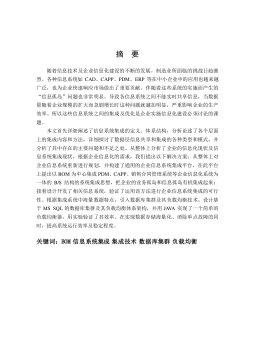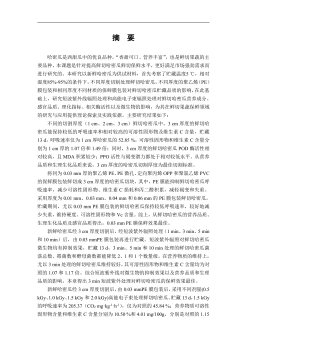中文“脱口秀”节目中会话含意的语用研究
VIP免费
i
Acknowledgements
First and foremost, I would express my deepest gratitude to my supervisor,
Professor Lv Le, who offered me illuminating guidance and timely encouragement
throughout the process of preparing and writing this paper. Without her help, the
completion of the present thesis would not be possible.
My thanks also go to Professor He Gang, whose lectures on pragmatics made me
interested in pragmatics. His enlightening and interesting lectures on pragmatics have
opened a new horizon for me.
I would like to thank all the teachers who have given me lectures during my
four-year undergraduate study and my two-and-a-half-year graduate study at University
of Shanghai for Science and Technology for their dedication and selfless help.
Finally and importantly, I would like to thank my family and my friends who have
helped me in this endeavor. My sincere thanks go especially to my sisters, who
supported me at the moment of anxiety and doubts.
ii
Abstract
Chinese talk shows have attracted much attention since its premiere. The utterance
of the host exerts direct influence on the popularity of the program and the appraisal of
the audience. At present, there is not much research on Chinese talk shows from the
perspective of pragmatics, and there is even less from the perspective of the
conversational implicatures.
The development of the theory of the conversational implicatures has a great
impact on pragmatics. The American philosopher, Paul Grice, first proposed cooperative
principle and its maxims. He pointed out that the violation of these maxims would give
rise to conversational implicatures. Heated discussions have appeared since Paul Grice
proposed the theory of conversational implicatures, and efforts have been made to fine
tune the theory.
The data in this thesis have been selected from three Chinese talk show programs
in the channels of Shanghai Media Group. These programs are very popular with the
audience in recent years. Analyses of the conversations in talk shows have been made
from the perspective of the pragmatic conversational analysis with the hope of giving
tentative discussion of strategies in conversations. These analyses are based on the
theory of conversational implicatures, cooperative principle and its maxims.
After the analysis, it is found that when the participants of talk shows violate the
maxims of cooperative principle, conversational implicatures might be given rise to and
as a result the programs appeal more to the audience. This analysis can also help talk
show viewers understand the conversational implicatures behind the expressions
themselves, and make more accurate appraisals of the programs.
The author hopes that this study can be of some help to talk show hosts in their
performance and enrich the research on pragmatic study of talk shows.
Key Words: Talk shows, Conversational Implicatures, Cooperative
Principle, Maxim
iii
摘 要
脱口秀节目在中国的发展受到了广泛的关注。电视脱口秀节目主持人的言语
直接关系到节目的质量和观众对节目的评价,目前语言学家对国内脱口秀节目的
具体语言运用方面研究还比较少,从会话含意角度来分析此类节目的研究微乎其
微。
会话含意理论的发展在语用学界有着深刻的影响。美国哲学家格莱斯提出合
作原则及其准则,并指出违反这些准则会产生会话含意。格赖斯会话含意的提出
在语言学界引起了不小的轰动,格赖斯会话含意后来得到不断地修正和补充。
作者选用了近年来在上海文广传媒集团下属频道播放的三档颇受观众好评的
脱口秀节目的谈话内容为语料,以会话含意理论,合作原则及其准则等为依据,
从语用会话分析的视角来分析谈话中的内容,并试图探讨节目中的谈话技巧。
通过分析,笔者发现电视脱口秀节目中很多情况下谈话参与者为达到谈话目
的,违反合作原则下的准则,产生会话含意,能够达到更佳的谈话效果。通过这
些分析,读者可以更好地理解谈话者试图表达的深层含意,可以对脱口秀节目做
出更准确的评价。
希望本文能够丰富主持人言语的语用研究,可以为主持人主持节目提供有益
的帮助。
关键词:谈话节目 会话含意理论 合作原则 准则
CONTENTS
Acknowledgements ............................................................................................................i
Abstract .............................................................................................................................ii
摘 要 ............................................................................................................................... iii
Chapter One Introduction .............................................................................................. 1
§1.1 General Description ........................................................................................... 1
§1.2 Thesis Organization ........................................................................................... 2
§1.3 Data Collection and Analyzing Method .............................................................3
§1.4 Aim .....................................................................................................................3
Chapter Two Theoretical Background ........................................................................... 4
§ 2.1 Overview ...........................................................................................................4
§ 2.2 Grice’s Theory of Conversational Implicature ..................................................5
§ 2.2.1 Cooperative Principle and its Maxims ........................................................... 6
§ 2.2.2 Conversational Implicatures .......................................................................... 8
§ 2.2.3 Features of Conversational Implicatures ....................................................... 8
§ 2.3 Neo-Gricean Development ............................................................................. 10
§ 2.3.1 Horn’s Q- and R-principles .......................................................................... 10
§ 2.3.2 Levinson’s Contribution to the Neo-Gricean Development .........................11
Chapter Three About Television Talk Shows ...............................................................14
§ 3.1 Previous Studies of Talk Shows ......................................................................14
§ 3.1.1 Media Studies of Talk Shows .......................................................................14
§ 3.1.2 Linguistic Studies of Talk Shows .................................................................14
§ 3.2 Definition and Characteristics of Talk Shows .................................................15
§ 3.3 Classification of Talk Shows ...........................................................................16
§ 3.4 Chinese Talk Shows ........................................................................................ 17
§ 3.4.1 Development of Chinese Talk Shows .......................................................... 17
§ 3.4.2 Introduction to ‘Chinese Tonight Show with Liu Yiwei’ .............................19
Chapter Four Conversational Implicatures in Chinese Talk Shows ................................21
§ 4.1 Overview .........................................................................................................21
§ 4.2 CI Produced by Violation of Maxims ............................................................. 22
§ 4.2.1 C I Produced by Violation of Maxim of Quality ......................................... 22
§ 4.2.2 CI Produced by Violation of Maxim of Quantity ........................................ 24
§ 4.2.3 CI Produced by Violation of Maxim of Relation .........................................27
§ 4.2.4 CI Produced by Violation of Maxim of Manner .......................................... 28
Chapter Five Conclusion .................................................................................................34
Appendix .........................................................................................................................36
Bibliography ................................................................................................................... 41
在读期间公开发表论文 .................................................................................................43
摘要:
展开>>
收起<<
iAcknowledgementsFirstandforemost,Iwouldexpressmydeepestgratitudetomysupervisor,ProfessorLvLe,whoofferedmeilluminatingguidanceandtimelyencouragementthroughouttheprocessofpreparingandwritingthispaper.Withoutherhelp,thecompletionofthepresentthesiswouldnotbepossible.MythanksalsogotoProfessorHeGang,whos...
相关推荐
-
跨境电商商业计划书模版VIP免费
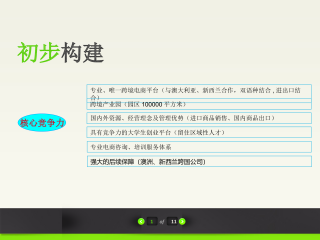
 2025-01-09 27
2025-01-09 27 -
跨境电商方案范文VIP免费

 2025-01-09 14
2025-01-09 14 -
创业计划书VIP免费
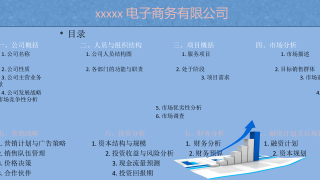
 2025-01-09 18
2025-01-09 18 -
xx生鲜APP计划书VIP免费

 2025-01-09 12
2025-01-09 12 -
跨境电商创业园商业计划书(盈利模式)VIP免费
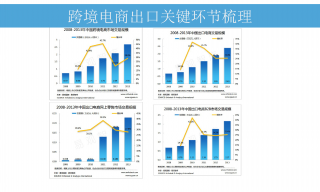
 2025-01-09 8
2025-01-09 8 -
跨境电商计划书VIP免费

 2025-01-09 13
2025-01-09 13 -
绿色食品电商平台项目计划书VIP免费

 2025-01-09 22
2025-01-09 22 -
农产品电子商务商业计划书VIP免费

 2025-01-09 8
2025-01-09 8 -
农村电商平台商业计划书VIP免费
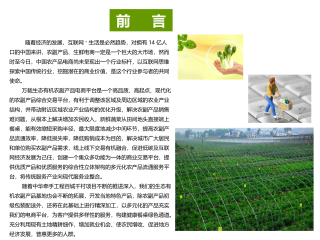
 2025-01-09 13
2025-01-09 13 -
生鲜商城平台商业计划书VIP免费
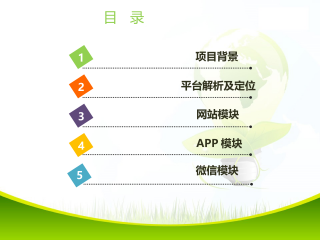
 2025-01-09 21
2025-01-09 21
作者:陈辉
分类:高等教育资料
价格:15积分
属性:49 页
大小:526.33KB
格式:PDF
时间:2024-11-20


